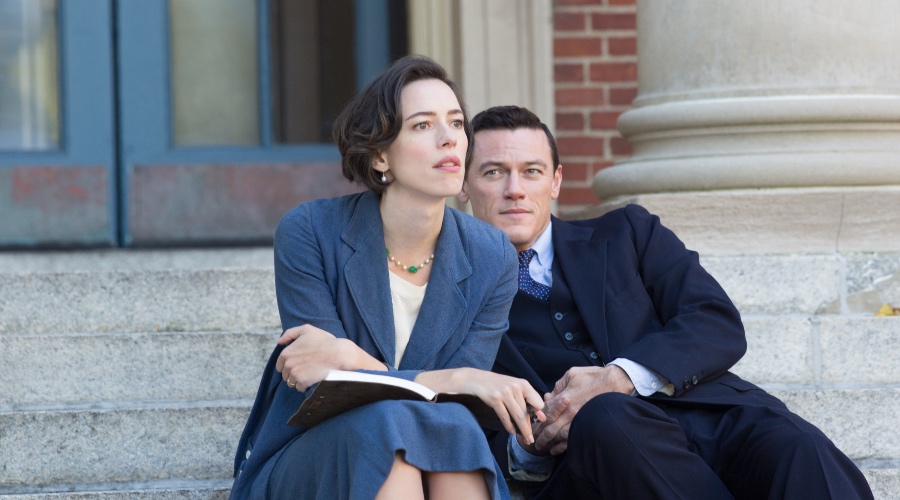Wonder Woman was the film that defied all the predictions: a big-budget superhero movie directed by a woman which managed to please not only the feminists and their daughters but also the boys who love DC and Marvel. In its slipstream comes Professor Marston and the Wonderwomen, written and directed by Angela Robinson, best known for her work in TV on The L Word. It's surrounded by some controversy as it claims to be a based on a true story but there's not a lot of corroborative testimony from the central characters to justify its narrative.
It’s the tale of Harvard psychology professor William Moulton Marston (Luke Evans), who together with his brilliant, spiky wife Elizabeth (Rebecca Hall) designed a prototype lie-detector machine in the 1930s. We meet him lecturing and flirting with his all-girl class on his theory that male-female relations are based on dominance and submission. His argument is that women should play more of a dominant role upon occasion in order for the mental health of both sexes to thrive (Hall and Evans pictured below). Watching his bravura performance at the lectern throughout is his wife, but Marston's eye is particularly drawn to Olive (Bella Heathcote), a student whose doll-like prettiness (and an aunt and mother who are pioneer feminists) intrigues him. His desire for Olive is briefly thwarted when she demonstrates that she’s more interested in snogging his wife than him, but they soon settle into a scandalous sexy threesome and Marston is forced to leave the university.
Watching his bravura performance at the lectern throughout is his wife, but Marston's eye is particularly drawn to Olive (Bella Heathcote), a student whose doll-like prettiness (and an aunt and mother who are pioneer feminists) intrigues him. His desire for Olive is briefly thwarted when she demonstrates that she’s more interested in snogging his wife than him, but they soon settle into a scandalous sexy threesome and Marston is forced to leave the university.
Churning out pop psychology articles doesn’t really pay their household bills or promulgate his theory, so Marston turns to comic book creations and launches Wonder Woman on the world with the help of DC Comics. The kinky costume and barely concealed bondage and spanking themes that run regularly through Marston's comic strips see him hauled up in front of a decency committee while his home life (he had children with both women) causes local scandal.
Angela Robinson has bathed the entire film with a nostalgic glow
Writer-director Angela Robinson cuts back and forth between scenes of Marston being interrogated by a decency committee and the three-way romance. It's a rather clunky narrative device. She has bathed the entire film with a nostalgic glow reminiscent not of the actual 1940s but of a 1990s Armani advertising version of the era. The much-hyped sex scenes are so wholesome as to be almost farcical.
Cutting through this schmaltz is a laser-like performance from Rebecca Hall, whose intelligence and line delivery is entertaining if anachronistic. Did women in that era, no matter how smart, really say things like, "When are you going to stop justifiying the whims of your cock with science?" Or describe someone as a "Grade A bitch"? Hall makes the other two players in her ménage à trois look like Ken and Barbie dolls; her performance just about saves the film, but it's a bit of a wasted opportunity to tell what was a remarkable story. The end credits contain a moving sequence of photographs of the two real-life women, who carried on living together for decades after Marston's death.
Overleaf: watch the official trailer for Professor Marston and The Wonderwomen















Add comment